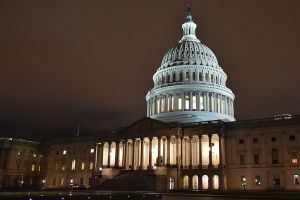2019 Chicago Council Survey data provide insight into how Millennials view key foreign policy issues compared with previous generations.
Introduction
Millennials, the oft-referenced generation born in the ’80s and ’90s, are the first generation to have access to the internet in their youth and are the largest and most diverse generation in American history. Now for the first time, Millennials are running for US president: Pete Buttigieg and Tulsi Gabbard were born in 1982 and 1981 respectively, putting them at the upper limit of the Millennial range.
The 2019 Chicago Council Survey data provide insight into how this group views key foreign policy issues compared with previous generations. While there is some evidence that younger Americans are more hesitant to engage in the world and more likely to oppose the use of force than their elders, time will tell whether the post-Cold War and 9/11 experiences have shaped a new generation with enduring preferences for a more restrained, less military-focused foreign policy.
Key Findings
- Sixty-two percent of Millennials say the United States should take an active role in world affairs. This is a smaller majority than any of the older generations but similar to Boomers’ levels when Boomers were the youngest Americans.
- Millennials are the only generation in which a majority say the United States is no greater than other countries (57%).
- Some of the largest gaps between the oldest and youngest generations emerge on perceived threats from climate change, immigration, instability in the Middle East, and the development of China as a world power.
- Threat perceptions increase with age, and so does backing for military action to address critical threats. Millennials are more dovish than older generations and are the least likely to favor using US troops if North Korea invaded South Korea, if China invaded Taiwan, or if Russia invaded a Baltic NATO ally.
- While majorities in each generation believe that maintaining alliances and military superiority make the United States safer, Millennials are the least likely to say this about military superiority.
Methodology
The analysis in this report is based on data from the 2019 Chicago Council Survey of the American public on foreign policy, a project of the Lester Crown Center on US Foreign Policy. The 2019 Chicago Council Survey was conducted June 7-20, 2019 by Ipsos Public Affairs, a polling, social science, and market research firm in Palo Alto, California, using its large-scale nationwide online research panel, KnowledgePanel, among a weighted national sample of 2,059 adults, 18 or older, living in all 50 US states and the District of Columbia. The margin of sampling error for the full sample is ±2.3, including a design effect of 1.1607. The margin of error is higher for partisan subgroups or for partial-sample items.
Respondents provided their age and the generation variable was determined as follows: Millennials are those born from 1981 to 1996; Gen X-ers are those born between 1965 and 1980; Baby Boomers are those born between 1946 and 1964; the Silent generation are those born between 1928 and 1945. Gen Z—those born between 1997 and 2012—are not included in this analysis due to an insufficient number of respondents falling into this age range.




